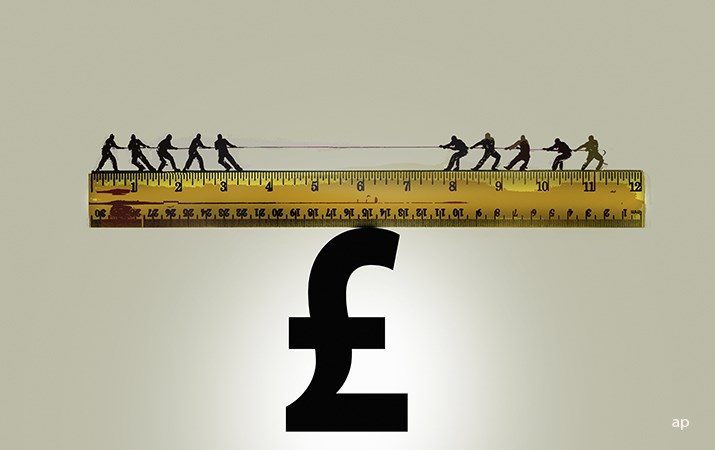
Income investors could be disappointed in 2020 if they are hoping for another record year of dividend payouts. The latest quarterly dividend monitor from Link warns that headline payouts are expected to fall by 7% this year.
UK dividends hit a new record high last year of more than £110 billion - it was a rise of 10.7% on 2018, according to Link. However a bumper year of special dividends, which totalled £12 billion, helped boost the overall figure. Stripping these out, growth was actually a more modest 2.8%, the slowest rise since 2014. Link's study also points out that the weakness of sterling through 2019 added about £2.4 billion to payouts in the first three quarters of year.
UK shares are expected to produce a yield of 4.1% for 2020, way ahead of other asset classes. But a stronger pound and fewer special dividends will see the headline figure fall by 7%, with payouts just likely to pass £100 billion.
2019 a Record Year for Dividends
The pound has risen since the Conservative party called an election and subsequently won it with a large majority in December. While this has attracted inflows into UK equities, stronger sterling weakens the payout for those FTSE 100 stocks that pay dividends in dollars – such as Shell (RDSB), HSBC (HSBA), BP (BP.) and Rio Tinto (RIO). As well as British American Tobacco (BATS), these five names are the top five companies by payouts on Link’s dividend list and make up 34% of total dividend. BP and Shell’s dividends were flat in dollar terms in 2019, for example, but were boosted by weaker sterling overall last year.
Two tobacco firms, Imperial Brands (IMB) and BAT, also made it into our recent list of top FTSE dividend payers; British American Tobacco has a yield of nearly 6%, has a “wide economic moat” and a five-star rating from Morningstar analysts, which means it is undervalued.
Shell has been the biggest dividend payer among UK firms since 2016, while HSBC and BP have steadily retained second and third position respectively among the list of top payers since then.
The oil, gas and energy sectors were still the biggest contributors to overall dividends, paying out £18.7 billion to shareholders in 2019. Mining wasn’t far behind with payouts reaching £15.7 billion, a 42% increase year on year including specials.
Banking was third at £15.6 billion, a rise of 34%, helped by a £2.5 billion special from Royal Bank of Scotland (RBS). Many investors are being lured back into UK banks by decent payouts and Morningstar analysts rank Lloyds Banking Group (LLOY) as one of the best picks in Europe for income. Morningstar analyst Johann Scholtz tips Lloyds to follow RBS in paying a special dividend in 2020 as its capital buffers are strong enough to cope with this boost in payouts.
Investors in the telecoms sector likely had a disappointing year, however, as payouts tumbled 28% from the year before to £3.8 billion. Payouts from the property sectors were down 15% on a headline basis to £2.2 billion while motor manufacturing dividends plunged 65% to just £44.7 million.
Weaker Growth in the Year Ahead
A stronger pound and fewer special dividends makes for a more cautious forecast for 2020. Still, Link says that for every £20 invested in the UK stock market, investors received £1.02 in income and that the base case for income investing remains solid. “Companies continue to pay income to their shareholders regardless of the gyrations of share prices," says Link chief operating officer Michael Kempe. "Over the long term dividends grow, providing protection for investor income against inflation, and an increase in real terms on top.”
That long-term growth has certainly delivered for income investors over the past 10 years. Dividends totalled £54 billion in 2009 and had more than doubled to £110.5 billion a decade later in 2019. Crucially for many income investors, payouts have tracked way ahead of inflation; had they grown in line with inflation headline pay outs would only have reached £73 billion, according to Bank of England data.







.jpg)



















